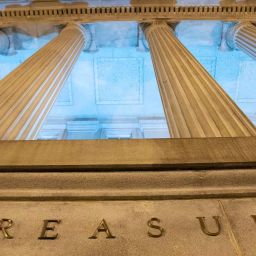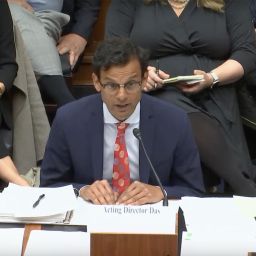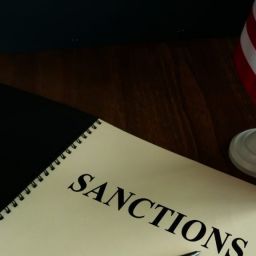As lawmakers propose unmasking those purchasing New York property through LLCs, recent analysis finds shortcomings in federal oversight of money laundering in the housing market.
As U.S. authorities boost efforts to seize Russian oligarchs’ assets in the wake of Russia’s war on Ukraine, New York legislators are proposing a bill to make property ownership more transparent.
Two lawmakers introduced legislation last month that would require any person purchasing property in New York through a Limited Liability Company, or LLC, to disclose their identity to the state and include the information in their tax returns. LLCs, business structures that shield their owners from personal liability, are popular in the financial secrecy world because they allow property buyers to mask their identity.
In New York, a longtime hotspot for stashing foreign wealth, shell companies have been used to purchase luxury properties, allowing the real owners to remain anonymous.
“Leaks such as the Panama Papers and the Pandora Papers have also revealed the extent of which money is laundered globally for the purposes of tax avoidance through anonymous shell corporations such as LLCs,” the bills says, citing investigations by the International Consortium of Investigative Journalists for showing how financial secrecy has created local, national and international public policy problems.
Lawmakers also highlighted New York Times reporting on how shell companies have obscured a stream of foreign wealth into elite New York real estate, whose owners included people under investigations or sanctions “for crimes such as money laundering and embezzlement.”

“LLC laws have enabled these individuals, whose purchases may have otherwise been scrutinized by international legal or tax authorities, to purchase assets in New York through anonymous and prac-tically untraceable shell corporations,” says the proposed legislation, introduced by State Sen. Brad Hoylman and Assemblymember Emily Gallagher.
Recent analysis examines the U.S. government’s oversight of money laundering in real estate, and points to the importance of enforced beneficial ownership reporting to make the federal program more effective.
The research, published by the Anti Corruption Data Collective and the Brookings Institution, looks at a U.S. Treasury policy, enacted in 2016, that imposes an anti-money laundering rule on high-end cash purchases of residential homes in a handful of real estate hot spots, including Manhattan. The policy, called Geographic Targeting Orders, was implemented following concerns that foreign dirty money was being used to secretly purchase multi-million dollar homes in the U.S. GTOs were seen as a success and expanded to 20 more counties in 2018.
But the new analyses found that the GTOs have had very little effect in deterring cash purchases of houses via opaque shell companies. The researchers analyzed data from online real estate company Zillow on residential real estate purchases in the counties where the program was introduced. While the Treasury said that the measure has provided valuable information about suspicious purchases, the studies say there is no indication that cash-only real estate buyers even tried to skirt the rules by purchasing houses below the price threshold or using trusts or other financial entities not covered by the policy. Researchers said they couldn’t identify any property seizures resulting from the program and that the Treasury has not reported any cases where GTO data assisted law enforcement in prosecuting known money laundering cases.
While Brookings notes that deterrence was never the main goal of the GTO program, which instead sought to gather information about suspicious purchases and pass it to law enforcement, the authors conclude that valid beneficial ownership information on real estate buyers is a missing link in the policy’s effectiveness.
“In the wake of Russia’s invasion of Ukraine, the need for high quality ownership information is greater than it has ever been before,” Brookings’ report said, citing KleptoCapture, a new U.S. Justice Department program, as an example. “But the success of these initiatives will depend on, and will be limited by, the quality of the information already garnered by the GTO program.”
Likewise, the ACDC report said “the lack of overt enforcement and validation of the ownership information failed to create a sufficient deterrent effect to drive out participation in the sector by illicit actors” by the GTO program.
The analysis comes at a time when the Treasury is proposing new regulation related to money laundering in real estate and there’s renewed interest in targeting the assets of oligarchs, including their property in the United States.
For example, Russian oligarch Oleg Deripaska, a close ally of President Vladimir Putin, had secretly purchased a mansion in Washington, D.C., paying $15 million cash, and more than $47 million for property in Manhattan using shell companies, the Washington Post reported in 2017. The U.S. Treasury sanctioned Deripaska in 2018, and he lost an appeal to lift the sanctions earlier this week.
Ukrainian oligarch Ihor Kolomoisky and his associates amassed a ruinous Midwest real estate empire, at one time becoming Cleveland’s largest commercial landlords, ICIJ found in a 2020 exposé. The findings were part of the FinCEN Files investigation with BuzzFeed News on global dirty money flows. Kolomoisky was sanctioned by the U.S. State Department last year.
The U.S. real estate market was called a “Kleptocrat’s dream” in a report last year by Global Financial Integrity, a Washington, D.C.-based transparency advocacy group, which found that at least $2.3 billion had been laundered in the previous five years through U.S. property purchases.
Last year, ICIJ’s Pandora Papers investigation found billions of dollars of property purchases made through offshore shell companies. Hundreds of companies in the leaked files listed owning real estate as a purpose. Secret investments included millions poured into U.S. rental properties by a wealthy religious order disgraced by a sexual abuse scandal, a ruling family’s London property empire, and a luxury Monaco apartment owned by a woman who reportedly had a child with Putin.
Original source of article: icij.org









